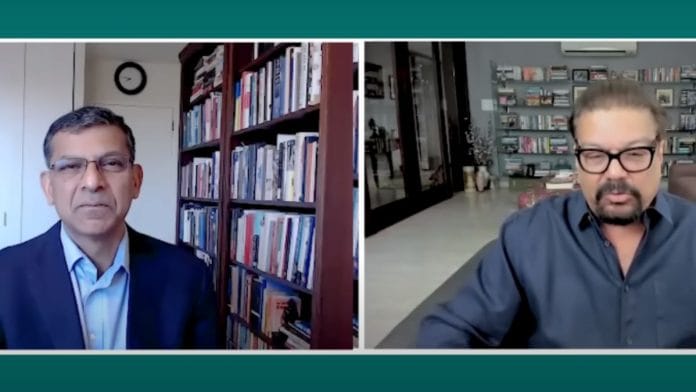In a remarkably candid interview with senior journalist Vir Sanghvi, Raghuram Rajan, former governor of the Reserve Bank of India, commented on the abrupt end to his tenure as the central bank’s chief. “I think certain elements clearly were not happy. Certain elements certainly did not see me as conforming. And I don’t want to entirely dissociate this from business interests either…I think business interests have political connections. And those political connections then work in their interest silently or explicitly.”
Rajan’s observations invoked for me a question that has long occupied political theorists: Are capitalists who operate within a framework of competitive democracy merely lucky, or do they wield power – the ability to bring about a desired state of affairs by acting? This question was put most superbly by the late political theorist Brian Barry in the title of his article, ‘Capitalists rule OK? Some puzzles about power’. It was published in the journal, Politics, Philosophy & Economics, in 2002.
Does big business have power?
I have no reason to believe that Rajan was aware of Barry’s article when he made his remarks. But it is quite clear what his answer to the question is. Indeed, for some, Rajan’s position would seem obvious. Of course, business has power.
The problem is it is often hard to find ‘smoking gun’ evidence showing that political connections actually work in favour of business. There are examples to the contrary for sure. The apartheid regime in South Africa collapsed because White business elites as a group explicitly negotiated the return of the African National Congress (ANC) leadership-in-exile when it became clear that the latter would not yield to coercion and the costs of external sanctions had become prohibitive. Or take Donald Trump’s conviction for trying to rig the 2016 United States presidential elections. But these instances are rare.
It is precisely in this ambiguity that one needs to locate Prime Minister Narendra Modi’s recent remarks about the Congress being in cahoots with two of the country’s biggest business houses. The point of the comment was this: you have accused me of tacitly supporting big business, but now that you are not speaking about them, it must mean you are hand-in-glove with them too. We know from hindsight, of course, that the statement ended up giving the Opposition a shot in the arm and caused considerable “surprise” to India Inc. But, in effect, the prime minister chose a very roundabout way to say that just because he is silent about big business does not imply that it has power over him.
And in this, the prime minister, who is often criticised for propagating ‘post-truth,’ has some serious intellectual company. Returning to Barry’s article, it was in part a conversation with one of his younger contemporaries, Keith Dowding, who had observed that capitalists may have power, but for the most part, they are plain lucky. Why? In his 1996 book Power Dowding writes “In a capitalist society, capitalists are systematically lucky because the welfare of everyone is dependent on the state of the economy and capitalism is the motor of the economy.” And governments “will not be re-elected if the economy plunges into recession, so they must ensure that their policies help the economy – which means helping the interests of capital. This does not itself make capital powerful. Rather, it is lucky, for capital does not set the constraints upon what is feasible, it simply benefits from what is.”
Also read:
‘You cannot have it both ways’
So, how did Barry respond to Dowding? He argued that if one admits that voters have the power to make and unmake governments and consumers have similar power over firms, even though each voter and each consumer acts solely in their self-interest, then one must also admit that capitalists have power over governments. Even if they are solely guided by individual profit-maximising motives.
It may be argued, and correctly so, that Barry’s conceptual framework is in much need of revision given all that we now know about voter/consumer rationality and irrationality. However, none of that detracts from the simple but valuable insight in the article that comes through as sharply today as it did two decades ago.
There are many who respond to concerns about the autocratic turn in contemporary Indian democracy by saying that the masses have ‘chosen’ to vote for autocracy. But ask them about India’s ever-worsening income inequality, and they will say it has nothing to do with the power of big business. To them, Barry says: you cannot have it both ways.
Subhasish Ray is Professor and Associate Dean (Research) at the Jindal School of Government & Public Policy, O.P. Jindal Global University, Haryana; and an editor for the Journal of Genocide Research. He tweets @subhasish_ray75. Views are personal.
(Edited by Zoya Bhatti)







In one word, No ordinary voters probably have more leverage with the government. Docile. Obedient.